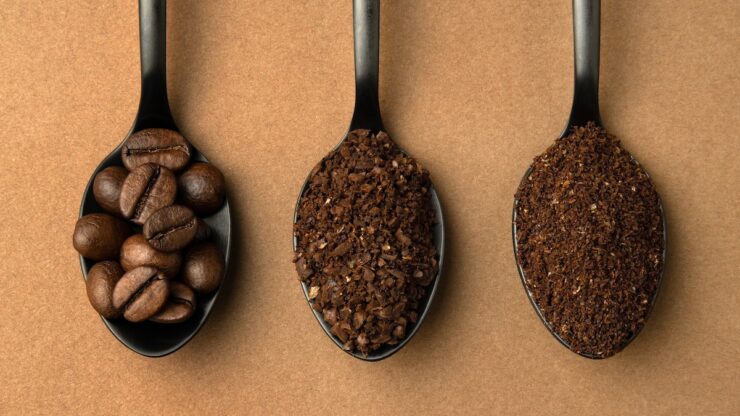Table of Contents
Coffee is a staple beverage for millions of people worldwide. While it provides a much-needed boost of energy and flavor, this industry can be a significant source of waste and environmental degradation. However, there are simple and effective ways to enjoy your favorite drink while reducing its environmental impact. This article will explore a range of tips and practices for making your coffee habit more sustainable.
Brewing Sustainable Coffee at Home
While choosing sustainable coffee is important, there are few steps you can take at home to make your coffee habit more environmentally friendly. Here are some tips for sustainable brewing in your own kitchen:
Benefits of using a French press or pour-over coffee maker
Ditch your drip maker and opt for a French press or pour-over coffee maker instead. According to Planetary Design, not only do these methods produce a better-tasting drink, but they also reduce waste by eliminating the need for paper filters.
Using reusable coffee filters instead of disposable ones
If you do choose to use a drip maker, switch to reusable coffee filters. These can be made of mesh or cloth and can be properly washed and reused again and again, reducing the amount of waste generated by disposable paper filters.
Suggestions for reducing coffee waste, such as composting coffee grounds
Finally, consider ways to reduce the amount waste generated in your home. For example, you can compost leftover grounds, which are rich in nitrogen and other nutrients, to help fertilize your garden or landscaping. Additionally, look for brands that use compostable or recyclable packaging to further reduce waste.
Choosing Sustainable Coffee Brands

One of the first and easiest ways to make your habit more sustainable is by choosing brands that prioritize environmental and social responsibility. Here are a few key factors to search for when selecting coffee brands:
Importance of fair trade and organic certification
When you buy coffee that is certified as fair trade, you can be assured that the farmers and workers are paid a fair price for their labor and products. Similarly, choosing certified organic product ensures that it is produced without harmful chemicals and pesticides that can really harm the environment and the people who produce it.
Opt for shade-grown coffee
Shade-grown coffee is type of coffee that is grown under the canopy of native trees and other vegetation rather than in large, cleared fields. This practice not only preserves habitats for wildlife and migratory birds but also provides a more stable and sustainable growing environment for plants.
How to choose coffee brands that prioritize sustainability
When shopping for your favotite beverage, look for brands that are transparent about their sustainability practices and are committed to reducing waste and environmental degradation. This can include things like using renewable energy, reducing water usage, and utilizing compostable or recyclable packaging.
Drinking Sustainable Coffee on-the-go

If you love to grab a coffee on the go, there are ways to make this part of your habit more sustainable as well. Here are some tips for drinking this tasty beverage in a more environmentally friendly way when you’re out and about:
Use a reusable coffee mug
Say no to disposable cups and invest in a reusable mug instead. Not only will this reduce waste, but many shops offer discounts for regular customers who bring their own reusable mugs.
Look for coffee shops that prioritize sustainability
When you’re out and about, look for shops prioritizing sustainability by using compostable or recyclable products and reducing waste. Additionally, consider supporting shops that use locally sourced, organic, or fair trade coffee.
Making your own coffee instead of buying it
Finally, consider making your own coffee at home and bringing it with you in a reusable mug, rather than buying coffee when you’re out. This not only reduces waste but also saves money in the long run.
Composting Coffee Waste
One of the biggest contributors to environmental impact is the waste generated by coffee production and consumption. However, there are ways to minimize this impact by composting waste. Here’s what you need to know about composting coffee waste:
Understanding coffee waste

Coffee waste refers to the grounds and filters left over from brewing coffee. This waste can be composted, which means it can be broken down into fertilizer used to grow new plants.
The benefits of composting coffee waste
Composting coffee waste has many benefits. It reduces the amount of waste sent to landfills and enriches the soil with nutrients that can help plants grow. Composting this type of waste can also help reduce greenhouse gas emissions by breaking down organic matter.
How to compost coffee waste
Composting coffee waste is easy, and there are many different methods. You can compost waste at home by adding it to your compost bin and other food waste, or take it to a local composting facility. Additionally, many coffee shops and cafes now have composting programs in place, making it easier than ever to compost this waste.
Conclusion
In conclusion, making your coffee habit more sustainable is easier than you might think. From choosing sustainable coffee brands to brewing coffee at home to drinking coffee on the go, there are many simple and effective ways to reduce the impact of your drinking habit on the environment. By making a few small changes, you can enjoy your coffee while also helping to conserve the planet.

